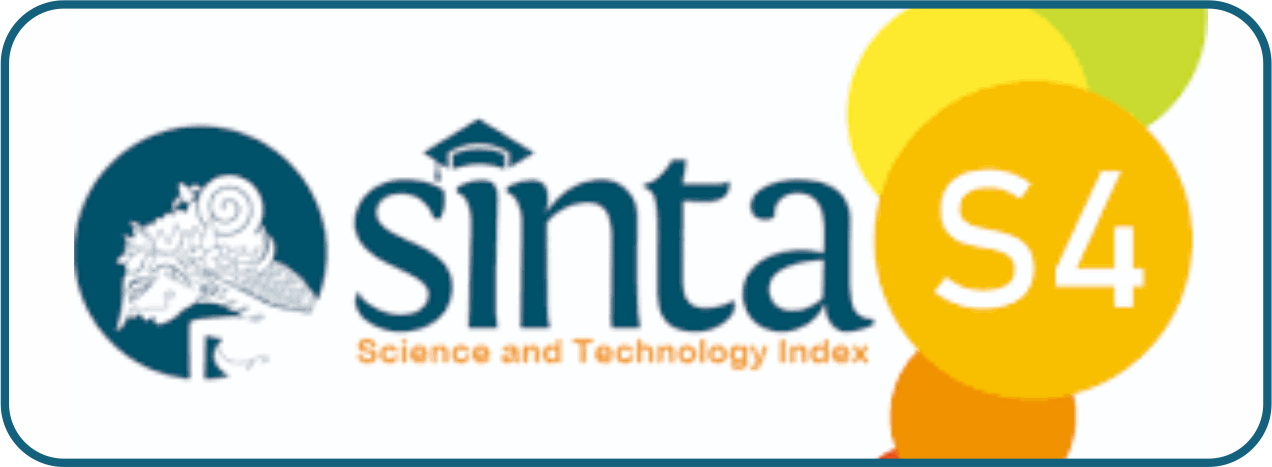Prototype of Blockchain-Based Diploma Transcript Authentication Method
Abstract
Keywords
Full Text:
PDFReferences
D. J. P. T. dan Kebudayaan, “Statistik pendidikan tinggi higher education statistics 2020.”
I. Y. Furqoni, “Pemalsuan ijazah di kalangan buruh pabrik (Studi kualitatif mengenai tindakan sosial dan stigmatisasi pelaku pemalsuan ijazah di Kabupaten Bekasi),” 2017. Accessed: Oct. 31, 2025. [Online]. Available: https://journal.unair.ac.id/Kmnts@pemalsuan-ijazah-di-kalangan-buruh-pabrik-(studi-kualitatif-mengenai-tindakan-sosial-dan-stigmatisasi-pelaku-pemalsuan-ijazah-di-kabupaten-bekasi)-article-11936-media-135-category-8.html
A. M. Karinda, “Kajian yuridis tentang pemalsuan ijazah menurut pasal 263 dan 264 KUHP,” Lex Crim., vol. 5, no. 6, 2016. Accessed: Oct. 31, 2025. [Online]. Available: https://ejournal.unsrat.ac.id/v3/index.php/lexcrimen/article/view/13480
A. N. Sari and T. Gelar, “Blockchain: Teknologi dan implementasinya,” J. Mnemon., vol. 7, no. 1, pp. 63–70, Mar. 2024, doi: 10.36040/mnemonic.v7i1.6961.
A. N. Sari and T. Gelar, “Blockchain-based long-term multisignature,” in International Conference on Applied Science and Technology on Engineering Science 2023 (iCAST-ES 2023), 2024, pp. 179–191, doi: 10.2991/978-94-6463-364-1_18.
N. Chaniago, P. Sukarno, and A. A. Wardana, “Electronic document authenticity verification of diploma and transcript using smart contract on Ethereum blockchain,” Regist. J. Ilm. Teknol. Sist. Inf., vol. 7, no. 2, p. 149, May 2021, doi: 10.26594/register.v7i2.1959.
G. Michoulis, S. Petridou, and K. Vergidis, “Verification of academic qualifications through Ethereum blockchain: An introduction to VERDE,” in XIV Balkan Conference on Operational Research (BALCOR 2020), 2020, pp. 429–433.
K. Nikolskaia, D. Snegireva, and A. Minbaleev, “Development of the application for diploma authenticity using the blockchain technology,” in 2019 International Conference “Quality Management, Transport and Information Security, Information Technologies” (IT&QM&IS), Sep. 2019, pp. 558–563, doi: 10.1109/ITQMIS.2019.8928423.
I. A. Putri, A. Hermawan, and A. R. K. Maranto, “Implementation of diploma and transcript verification system on the Ethereum blockchain network,” bit-Tech, vol. 6, no. 3, pp. 379–388, Apr. 2024, doi: 10.32877/bt.v6i3.1288.
C. BouSaba and E. Anderson, “Degree validation application using solidity and Ethereum blockchain,” in 2019 SoutheastCon, Apr. 2019, pp. 1–5, doi: 10.1109/SoutheastCon42311.2019.9020503.
Y. Shakan, B. Kumalakov, G. Mutanov, Z. Mamykova, and Y. Kistaubayev, “Verification of university student and graduate data using blockchain technology,” Int. J. Comput. Commun. Control, vol. 16, no. 5, Sep. 2021, doi: 10.15837/ijccc.2021.5.4266.
M. A. Uddin, A. Stranieri, I. Gondal, and V. Balasubramanian, “A survey on the adoption of blockchain in IoT: Challenges and solutions,” Blockchain Res. Appl., vol. 2, no. 2, p. 100006, Jun. 2021, doi: 10.1016/j.bcra.2021.100006.
T. Ahmad, “Shared secret-based key and fingerprint binding scheme,” Kursor, vol. 7, no. 1, pp. 11–18, 2013. Accessed: Oct. 31, 2025. [Online]. Available: https://www.kursorjournal.org/index.php/kursor/article/view/51
P. Zhang, Q. Cheng, M. Zhang, and X. Luo, “A blockchain-based secure covert communication method via Shamir threshold and STC mapping,” IEEE Trans. Dependable Secur. Comput., vol. 21, no. 5, pp. 4469–4480, Sep. 2024, doi: 10.1109/TDSC.2024.3353570.
X. Fu, L. Xiong, F. Li, X. Yang, and N. Xiong, “Blockchain-based efficiently privacy-preserving federated learning framework using Shamir secret sharing,” IEEE Trans. Consum. Electron., pp. 1–1, 2024, doi: 10.1109/TCE.2024.3439437.
A. Rustemi, F. Dalipi, V. Atanasovski, and A. Risteski, “A systematic literature review on blockchain-based systems for academic certificate verification,” IEEE Access, vol. 11, pp. 64679–64696, 2023, doi: 10.1109/ACCESS.2023.3289598.
D. Kumar and M. K. D S, “Educational certificate verification system using blockchain,” J. Crit. Rev., vol. 10, no. 2, 2023. Accessed: Oct. 31, 2025. [Online]. Available: https://www.researchgate.net/publication/384476272
A. R. Manoj and S. Joshi, “Securing academic certificate verification with blockchain-based algorithmic rules,” in 2023 IEEE IMCET, Dec. 2023. Accessed: Oct. 31, 2025. [Online]. Available: https://www.researchgate.net/publication/376926508
P. K. Poornima et al., “Academic certificate authenticity using blockchain technology: A review,” Int. J. Res. Appl. Sci. Eng. Technol., vol. 12, no. 4, 2024. Accessed: Oct. 31, 2025. [Online]. Available: https://www.researchgate.net/publication/387568649
S. M. Chowdhury and A. Rahman, “DIAR: A blockchain-based system for generation and verification of academic credentials,” SN Appl. Sci., vol. 6, no. 7, 2024, doi: 10.1007/s42452-024-05984-1.”
DOI: https://doi.org/10.17509/coelite.v4i2.86050
Refbacks
- There are currently no refbacks.
Journal of Computer Engineering, Electronics and Information Technology (COELITE)
is published by UNIVERSITAS PENDIDIKAN INDONESIA (UPI),
and managed by Department of Computer Enginering.
Jl. Dr. Setiabudi No.229, Kota Bandung, Indonesia - 40154
email: coelite@upi.edu
e-ISSN: 2829-4149
p-ISSN: 2829-4157




